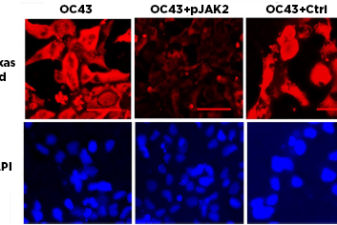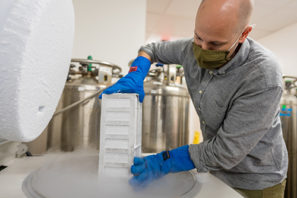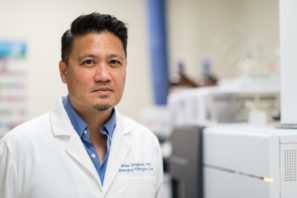In January 2020, rumors of a nascent disease proliferating through Wuhan, China were spreading. Tom Hladish, a quantitative epidemiologist at...
When the virus that causes COVID-19 enters the body, it hijacks cellular proteins and suppresses the human inflammatory response, allowing...
ntists can grow individual cell lines in a dish and study how the coronavirus infects them. And that’s useful as far as it goes. In a sense, however, it’s like studying how a car works by looking at just the carburetor. To gain the most insight, researchers want to study human lung tissue in its full, multidimensional glory, with all cell types represented.
people, however, soon discover the microscopic invader won’t allow them to return to their normal lives even months after infection. It’s an especially insidious side of the coronavirus that makes vaccination all the more important — COVID-19 as chronic illness.
The question kept coming up: Why are some countries in the grip of COVID-19 while others appear less affected?
It’s a pandemic seemingly without end. The latest coronavirus variant is fueling a surge in cases while Americans worry about ever-more infectious versions to come. The daily news is filled with talk of sickness, overburdened health care providers and the struggle to mask and vaccinate a nation. It’s a recipe for a mental health crisis.
A new study found that 35% of all COVID-19 infections are asymptomatic. Children are most likely to lack symptoms, while the elderly are least likely.
Convalescent plasma does not effectively prevent the progression of COVID-19 from a mild to severe form of the disease in high-risk patients, according to the results of a national clinical trial that involved University of Florida Health.
Meanwhile, an internal report by the Centers for Disease Control and Prevention concluded the delta variant is as contagious as chickenpox and more transmissible than the viruses that cause seasonal flu, the common cold and Ebola.
A team of UF researchers has identified dozens of novel therapeutic targets for the development of antiviral therapies against COVID-19 and other coronaviruses that infect people.
Patients with severe COVID-19 twice as likely to require future hospitalizations for other illnesses
People who have recovered from a bout of severe COVID-19 may still have reason for concern about their health.
A look back at the contributions of UF’s Emerging Pathogens Institute to campus-wide COVID-19 research.












